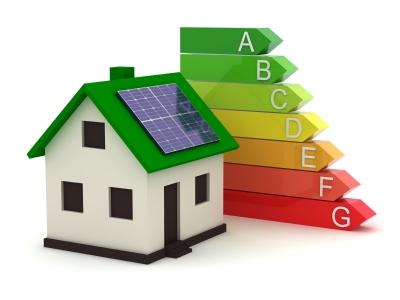| Day | Opening Hours |
|---|---|
| Monday | 8:30am - 6pm |
| Tuesday | 8:30am - 6pm |
| Wednesday | 8:30am - 6pm |
| Thursday | 8:30am - 6pm |
| Friday | 8:30am - 6pm |
| Saturday | 9:00am - 3pm |
Eco-friendly homeowners could see the value of their properties rise by 14% on average, research from the Department of Energy and Climate Change (DECC) reveals.

Eco-friendly homeowners could see the value of their properties rise by 14% on average, research from the Department of Energy and Climate Change (DECC) reveals.
For an average home in the country, improving its Energy Performance Certificate from band G to E, or from band D to B, could mean adding more than £16,000 to the sale price of the property.
Energy and climate change minister Greg Barker said: “We have long known the benefits of making energy saving improvements to the home, but this study is real evidence of the huge potential rewards.
“Not only can energy efficient improvements help protect you against rising energy prices but they can also add real value to your property.”
In some parts of the country property values could increase by 38%. In the North East improved energy efficiency from band G to E could increase this value by over £25,000 and the average home in the North West could see £23,000 added to its value.
The DECC said the report, which took into account over 300,000 property sales in England between 1995 and 2011, is the most comprehensive research in this area to date. It believes that that energy efficiency is now a key factor influencing the sale price of most residential dwellings in England.
Barker added: “The Green Deal is helping more people make these types of home improvements reducing high upfront costs and letting people pay for some the cost through the savings on their bills. The Green Deal is a great option for anyone wanting to improve the look, feel and potentially the value of their home.”
Nearly half (46%) of properties in England are currently band D but, compared to this, a typical home in the West Midlands in band B is estimated to be valued at nearly £17,000 more. In the North East this could be over £19,000, £3,000 more than the national average.
Peter Lawrence at Lawrence Rand said: “The Government’s figures, which seem excessively optimistic, are clearly designed to promote and support their flagship energy efficiency policy although there is some evidence that potential buyers, and indeed tenants, are beginning to take the cost of energy efficiency into account when making a buying or renting decision.
“With fuel bills continuing to rise, buyers and tenants are becoming more and more conscious about the energy efficiency of their prospective new homes and are willing to invest more in a property now if they know it will cost them less to run in the future. This is, of course, a practical and sensible approach.”
The Green Deal is the coalition government’s flagship energy efficiency initiative.
The Green Deal helps households pay for some of the cost of making energy-saving improvements with the repayments spread out over time and paid back through the electricity bill.